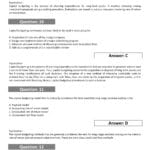Suboxone, a medication for opioid addiction, often raises questions about its detectability in drug tests. This comprehensive guide explores how Suboxone interacts with various drug screening methods, including urine, hair, and saliva tests.
Understanding Suboxone and Drug Testing
Suboxone, a combination of buprenorphine and naloxone, is primarily used to treat opioid dependence. Drug tests typically target buprenorphine, as naloxone metabolizes quickly. Standard 5-panel drug tests, common in workplaces, likely won’t detect Suboxone. However, more comprehensive tests, such as 10 and 12-panel screens, may detect buprenorphine, especially at higher doses.
How Suboxone is Metabolized
Buprenorphine, the active ingredient in Suboxone, undergoes a complex metabolic process in the liver. Factors influencing this process include individual liver function, genetics, and even gut health, as emerging research suggests. This can affect how long Suboxone and its metabolites remain detectable. Naloxone, included in Suboxone to prevent misuse, is rapidly metabolized and is rarely targeted in standard drug tests.
Types of Drug Tests and Suboxone Detection
- 5-Panel Test: This common workplace test screens for substances like marijuana, cocaine, PCP, amphetamines, and opiates (codeine, morphine, heroin). It is unlikely to detect buprenorphine.
- 10-Panel Test: Broader than the 5-panel, it includes some prescription drugs. It might detect high levels of buprenorphine, but this isn’t guaranteed.
- 12-Panel Test: The most comprehensive of the standard panels, it can detect methadone and buprenorphine. What drugs show up on a 12 panel test? for more details.
- Specialized Tests: Targeted buprenorphine tests exist and offer the most definitive results.
Detection Window
The detection window for Suboxone varies depending on factors like dosage, frequency of use, individual metabolism, and the specific test used. In urine, it’s typically detectable for several days, possibly up to two weeks for norbuprenorphine (a buprenorphine metabolite). How long does Suboxone stay in your urine calculator? offers more insights, though individual results may vary. Hair tests can detect Suboxone for weeks to months, providing a longer history of use, while saliva tests typically detect recent use, within a few days.
Legal and Workplace Considerations
In the workplace, a positive Suboxone test can have implications. Open communication with employers about prescribed Suboxone use is essential. Some employers may have specific policies regarding MAT. Legal considerations vary depending on jurisdiction and context. If you have legal concerns related to Suboxone and drug testing, consult a legal professional.
False Positives
While unlikely, some substances might trigger a false positive for buprenorphine. Always disclose all medications and supplements you are taking to the testing facility. This transparency is crucial for accurate result interpretation.
Other MAT Options
Methadone, another MAT option, has a different detection profile than Suboxone. Consulting a healthcare provider is crucial for personalized treatment planning and understanding potential drug testing implications. [https://www.lolaapp.com/]
Suboxone, Drug Tests, and Your Health
Understanding how Suboxone interacts with drug tests is crucial for managing your health and navigating potential workplace or legal situations. If you have any further questions, consult your doctor or a qualified addiction specialist.
Ever wondered about the shelf life of other products? Discover whether shrooms expire or if kombucha expires. These articles provide valuable insights into preserving the potency and quality of these unique products.
Additional Important Points
- Suboxone is a valuable tool in the fight against opioid addiction.
- Transparency with healthcare providers and testing facilities is paramount.
- Drug testing technology continually evolves. Staying informed is key.
- Individual experiences with Suboxone and drug tests can vary considerably.
This information is for educational purposes and doesn’t constitute medical advice. Always consult with a healthcare professional for personalized guidance.
- Revolution Space: Disruptive Ion Propulsion Transforming Satellites - April 24, 2025
- Race Through Space: Fun Family Game for Kids - April 24, 2025
- Unlocking the Universe: reading about stars 6th grade Guide - April 24, 2025
















